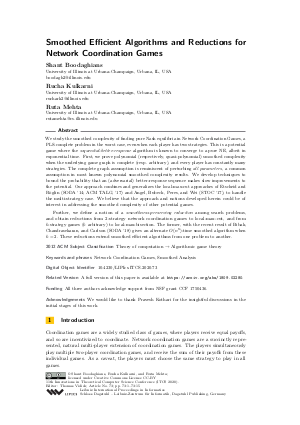LIPIcs.ITCS.2020.73.pdf
- Filesize: 0.49 MB
- 15 pages

 Creative Commons Attribution 3.0 Unported license
Creative Commons Attribution 3.0 Unported license






































Feedback for Dagstuhl Publishing